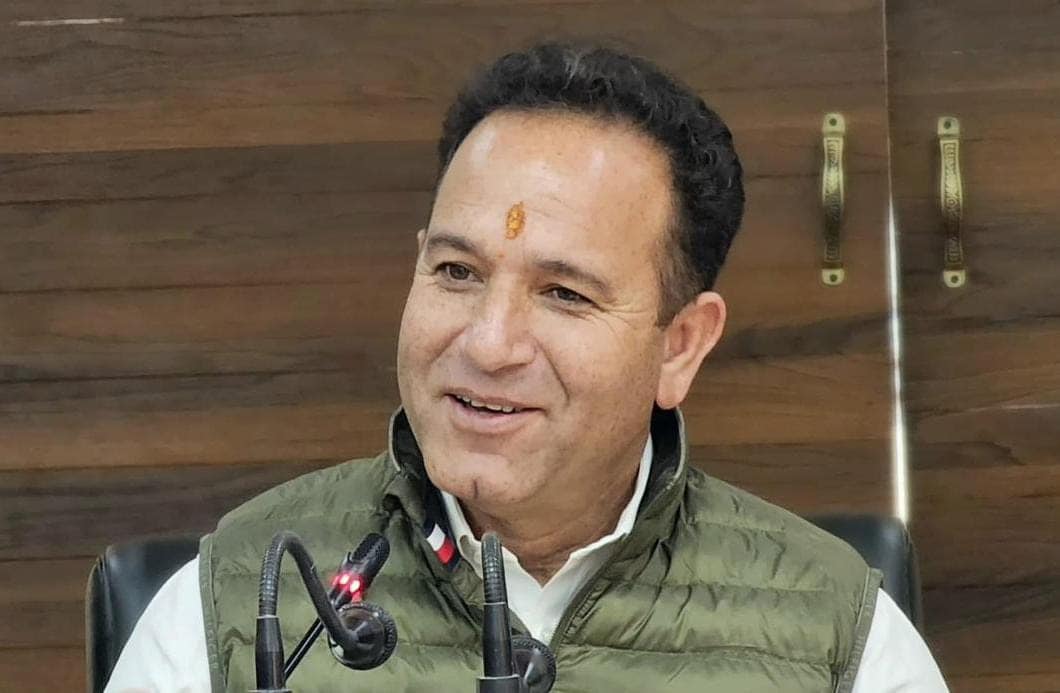Governance First, Slogans Later: Public Anger Mounts Over Unfulfilled Promises by Omar Abdullah’s Government
By: Javid Amin | 09 October 2025
Leader of Opposition Sunil Sharma has launched a sharp attack on the Omar Abdullah-led government, accusing it of failing to deliver basic services to the people and relying instead on political slogans to cover up governance failures.
Speaking to reporters in Jammu, Sharma said the administration has “turned governance into a spectacle of speeches and slogans” while ordinary citizens continue to struggle with power cuts, unemployment, lack of ration support, and poor public services.
“The government was elected to serve people, not to hold endless press conferences. One year has passed, and none of the major promises made during the election have been fulfilled. They speak of statehood every day, but what about electricity, ration, jobs, schools, and hospitals?” he said.
“Promises Are Not Governance”
Sharma reminded the government of the bold welfare commitments it made during the 2024 election campaign. These included:
-
200 units of free electricity per household
-
12 LPG cylinders annually for each family
-
10 kg of ration per family
-
One lakh government jobs for youth
“Not a single promise has been implemented. No subsidy orders, no recruitment notifications, no ration expansion. This government is busy giving speeches while people are paying the price,” Sharma said.
He added that the opposition had warned against overpromising during the campaign, but the ruling party “chose slogans over substance.”
“Empty Classrooms and Unmanned Hospitals”
Highlighting administrative gaps, Sharma said that schools and hospitals across the region are facing severe staff shortages, directly affecting students and patients.
“There are schools without teachers and hospitals without doctors. This government has the power to make appointments but chooses not to act. Governance is about decisions, not announcements,” he remarked.
He accused the administration of turning routine public services into political talking points without any real follow-up on the ground.
“16 Cabinet Meetings, Zero Impact”
Sharma also took a dig at the government’s claim of administrative activity. He pointed out that despite holding 16 cabinet meetings and approving 97 files, the government has failed to produce visible results.
“What is the use of cabinet meetings when nothing changes for the people? If approvals don’t reach the ground, then they’re just papers gathering dust,” he said.
According to Sharma, the ruling leadership cannot keep blaming procedural hurdles forever. “They have power, they have files, but they lack intent.”
“Statehood Cannot Be an Excuse”
One of Sharma’s strongest criticisms targeted the ruling party’s constant focus on statehood as its political slogan.
“Statehood is not a shield to hide failures. Governance is not suspended until a constitutional change happens. People need services today, not speeches about tomorrow,” Sharma declared.
He said the administration has weaponized the statehood issue to deflect public scrutiny from its own inaction.
“Deliver First, Debate Later”
Sharma concluded his remarks by urging the government to shift focus from slogans to service delivery.
“People are losing patience. The ruling party must realize that governance is not a rally speech. It is daily work. Deliver first, debate later,” he said.
He also hinted that if this trend continues, public trust may collapse further, and the political consequences could be felt strongly in the next elections.
Bottom-Line
Sunil Sharma’s statement reflects a growing opposition narrative centered on governance failures. With mounting public frustration over electricity, ration, education, and employment gaps, the pressure on the ruling leadership is intensifying.
The opposition’s message is clear: political slogans cannot substitute governance.
“Governance first. Slogans later.”


